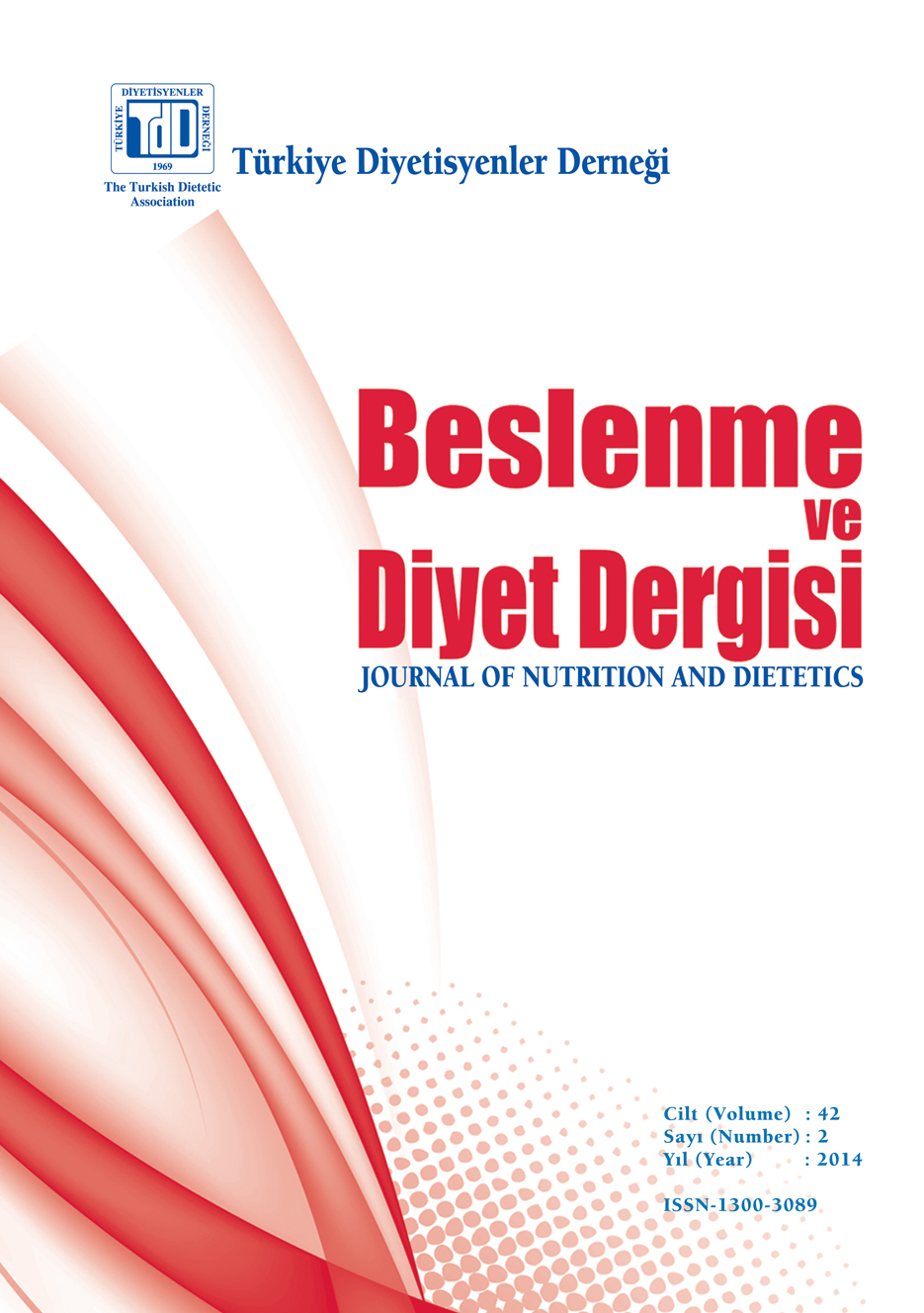Assessment of Dietary Intakes in Children with Neurological Dysphagia
Keywords:
Nutrition, dysphagia, pediatric neurology, swallowing disordersAbstract
Aim: The aim of this study was to evaluate feeding type, energy, macronutrients and micronutrients intake of children with neurological dysphagia. Subjects and Methods: A total of 96 children aged 1 to 10 years followed by Hacettepe University Faculty of Medicine, Department of Pediatric Neurology with a diagnosis of dysphagia related to their neurological disorder were included. General information about the children, feeding methods and 24-hour dietary recalls were obtained, anthropometric measurements were evaluated. According to the WHO 2006 and WHO 2007 Growth Standards, patients whose weight-for-age Z score values under -2 SD were determined to be underweight. Food consumption and nutritional support formulas intake were analyzed by using BeBİS 7.2 programme. Adequacy of age specific recommended intakes of energy and nutrients were evaluated according to “Dietary Guidelines for Turkey.” Results: The mean age was 3.8±2.4 years (1-9.4 years). Out of 96 patients examined, 56.2% were boys and 43.8% were girls and 50% of children were underweight. When children were classified into 3 groups according to their feeding type; it was shown that 43.7% of patients were orally fed, 14.6% were both orally and tube fed, 41.7% were only tube fed. The ratio of using nutritional support formula was found as 69.8%. In this study, boys consumed 70.4% and girls consumed 61.6% of recommended daily energy intake (p>0.05). It was also found that boys consumed 145.3% and girls 127.9% of recommended daily protein intake (p>0.05). In addition, it was determined that children consumed %23.3 of recommended daily fiber intake. Conclusion: Due to increase in nutritional requirements during growth and development period and also having difficulties providing adequate nutrients, dysphagic children are under the risk of malnutrition.

